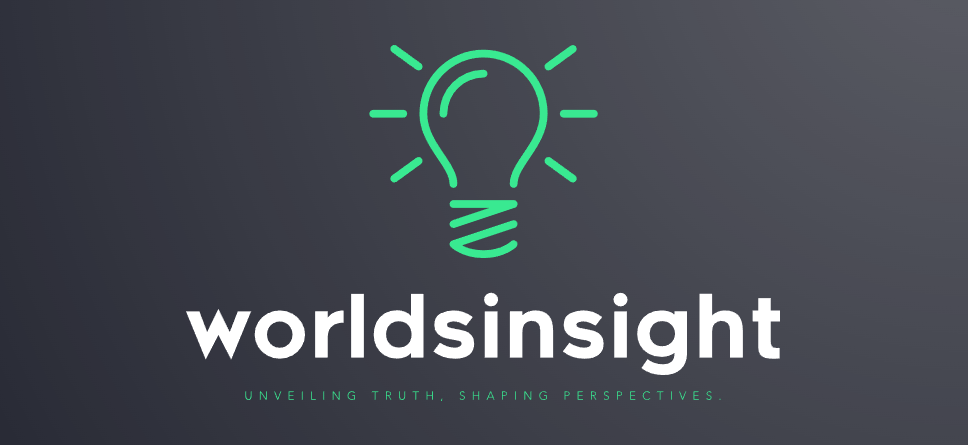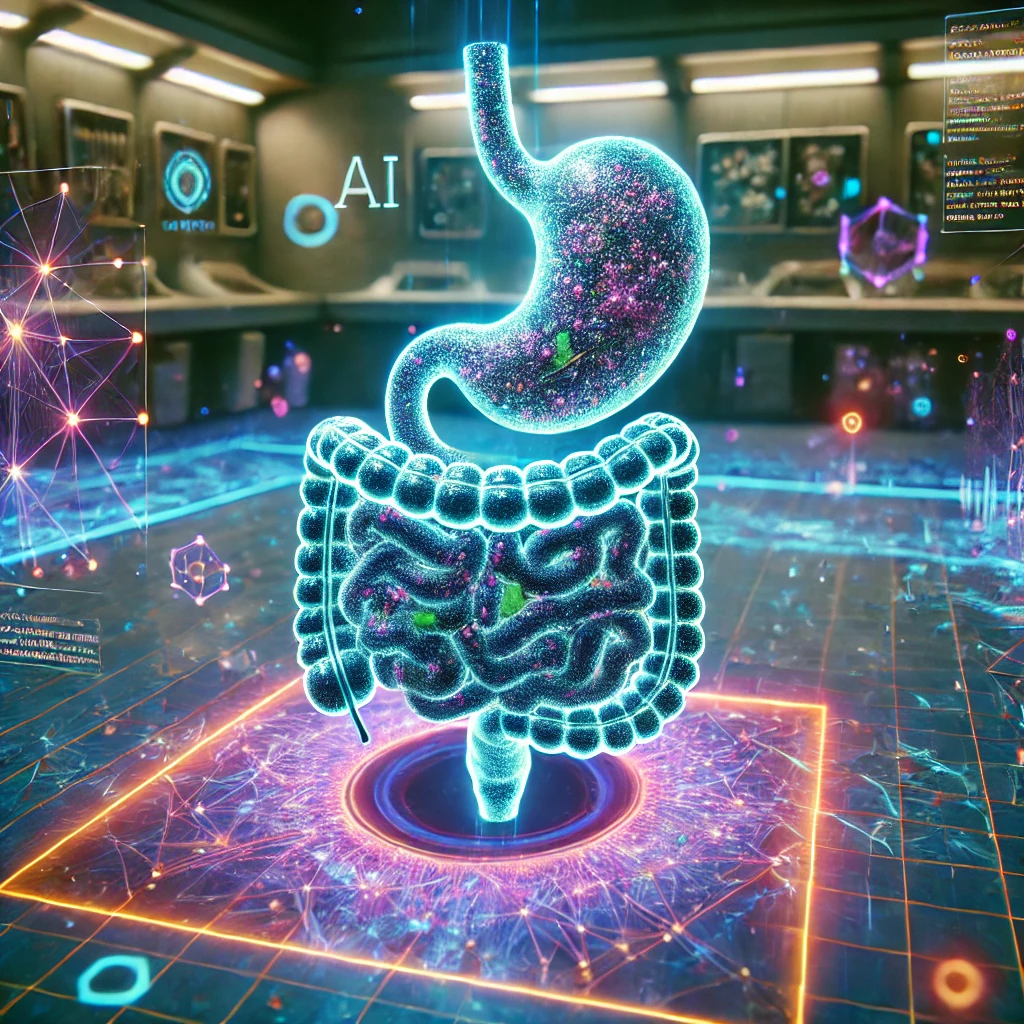Gut Microbiome Intelligence: How AI-Driven Personalized Nutrition is Redefining Sustainable Health in 2025
Introduction: The Convergence of Gut Health, AI, and Sustainability
The human gut microbiome—a complex ecosystem of trillions of bacteria, viruses, and fungi—has emerged as a cornerstone of modern health science. In 2025, advancements in AI-driven personalized nutrition are revolutionizing how we understand this “second brain,” offering tailored dietary solutions that boost immunity, manage chronic diseases, and promote environmental sustainability. By integrating AI algorithms with gut microbiome analysis, innovators are unlocking hyper-personalized diets that align individual health needs with global ecological goals. This article explores how this synergy is reshaping wellness, one microbiome at a time.
The Gut Microbiome: Your Body’s Hidden Health Architect
What Is the Gut Microbiome?
The gut microbiome refers to the diverse community of microorganisms residing in the gastrointestinal tract. These microbes influence:
- Metabolism: Breaking down complex fibers into short-chain fatty acids (SCFAs) like butyrate, which regulate inflammation.
- Immune Function: Training 70% of the body’s immune cells to distinguish pathogens from allies.
- Mental Health: Producing neurotransmitters like serotonin via the gut-brain axis.
Dysbiosis: When the Microbial Balance Fails
An imbalanced microbiome (dysbiosis) is linked to:
- Obesity and type 2 diabetes.
- Inflammatory bowel disease (IBD) and autoimmune disorders.
- Anxiety and depression.
Key Fact: Gut microbiota diversity is 150 times richer than the human genome, making each individual’s microbial profile unique.
AI-Driven Personalized Nutrition: The Future of Dietary Science
How AI Decodes Your Microbiome
Modern platforms like Zoe and Viome use AI to analyze gut microbiome data alongside:
- Genetic predispositions.
- Blood sugar and lipid responses.
- Lifestyle factors (sleep, stress, exercise).
Process:
- Data Collection: At-home test kits analyze stool samples for microbial composition.
- Algorithmic Analysis: Machine learning models predict how specific foods affect your metabolism and immunity.
- Personalized Recommendations: Tailored meal plans optimize gut health while meeting caloric and nutritional needs.
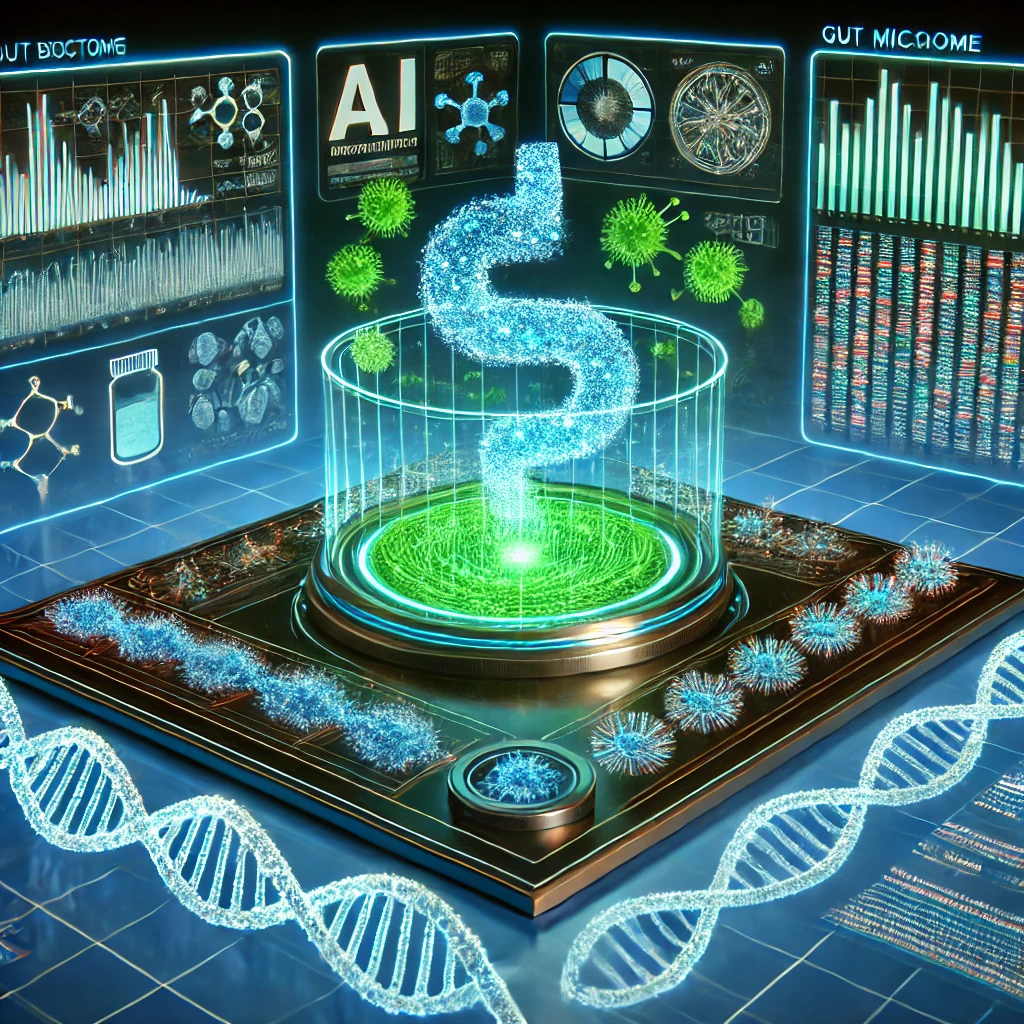
Case Study: Reducing Food Waste Through Precision Diets
A 2025 trial by DayTwo demonstrated that AI-driven personalized nutrition plans reduced household food waste by 37% by aligning portion sizes and ingredient choices with individual needs[6].
Sustainability Meets Personalized Health
The Carbon Footprint of Diets
Traditional one-size-fits-all diets often overlook environmental impact. AI addresses this by:
- Recommending locally sourced, seasonal ingredients to minimize transportation emissions.
- Prioritizing plant-based proteins for users with lower inflammatory risks[6][4].
- Reducing overconsumption through precise calorie calculations.
Example: A user prone to lactose intolerance receives almond milk alternatives, cutting dairy-related methane emissions.
AI’s Role in Sustainable Agriculture
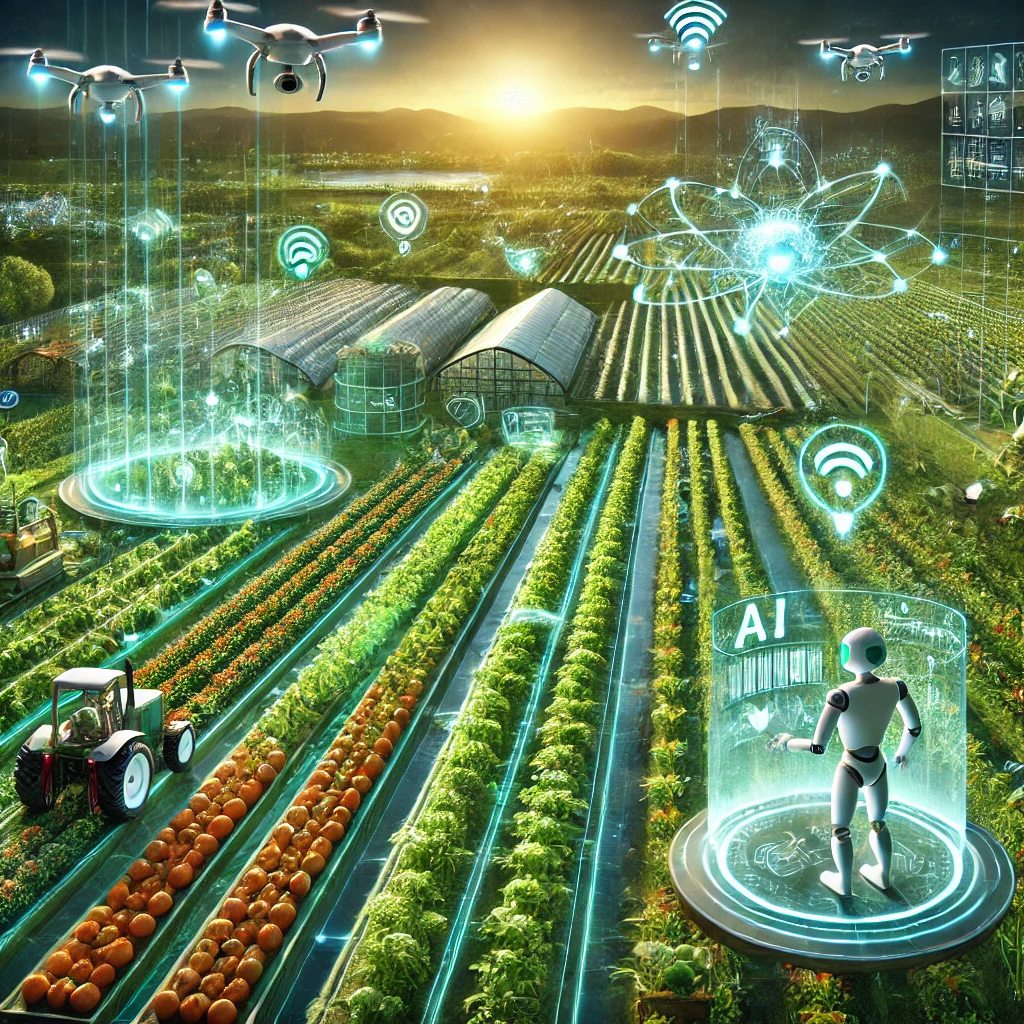
Machine learning optimizes crop rotations and soil health by analyzing:
- Microbial activity in farmland.
- Climate patterns.
- Nutrient density of produce.
Implementing AI-Driven Nutrition: A Step-by-Step Guide
For Individuals
- Take a Gut Health Test: Use kits from companies like Viome or Zoe.
- Upload Data to AI Platforms: Get instant insights into microbial imbalances.
- Follow Custom Meal Plans: Recipes adjust dynamically based on real-time health metrics (e.g., glucose levels).
For Healthcare Providers
- Integrate AI tools like Nutrigenomix to prescribe diets for chronic conditions.
- Use predictive analytics to identify patients at risk of metabolic disorders.
Ethical Considerations and Challenges
Data Privacy
- Ensure encrypted storage of microbiome and genetic data.
- Limit third-party access to sensitive health information.
Algorithmic Bias
- Train AI models on diverse datasets to avoid skewed recommendations for underrepresented ethnic groups.
The Future of AI-Driven Nutrition
Predictions for 2026–2030
- Wearable Gut Sensors: Real-time monitoring of microbial activity.
- AI-Powered Food Printers: Create meals tailored to daily microbiome shifts.
- Global Microbiome Banks: Preserve microbial diversity for future generations.
Conclusion: A Healthier Planet, One Personalized Plate at a Time
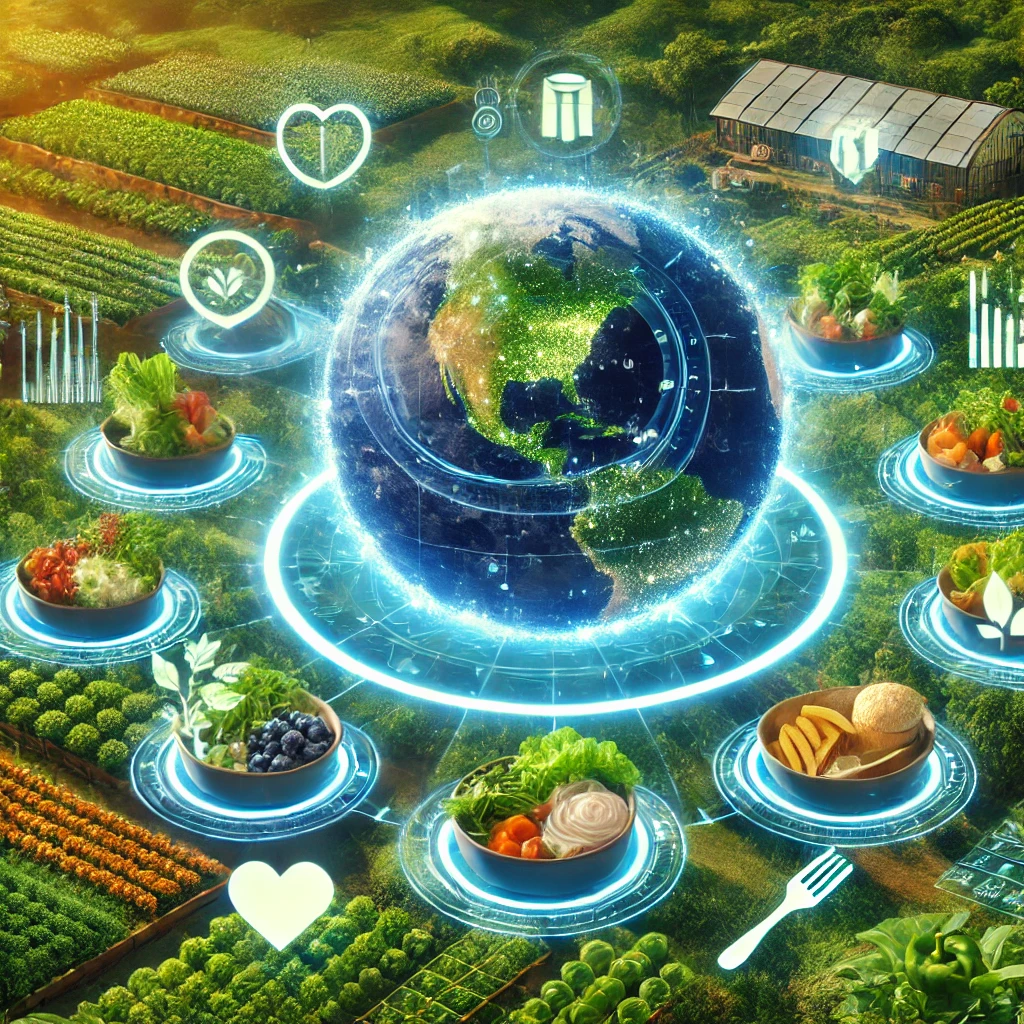
AI-driven personalized nutrition is no longer a sci-fi fantasy—it’s a 2025 reality bridging individual wellness and planetary health. By harnessing gut microbiome intelligence, we can combat chronic diseases, slash food waste, and foster sustainable food systems. As AI evolves, expect a future where every bite is a step toward optimal health and ecological balance. Our gut microbiome plays a crucial role in digestion, immunity, and even mental health. AI-powered analysis of gut bacteria enables the creation of customized dietary recommendations that optimize nutrient absorption and improve metabolism.
FAQ Section
Q: How accurate are AI-based nutrition recommendations?
A: Leading platforms achieve 89% accuracy in predicting glycemic responses, per a 2025 Nature study.
Q: Can AI diets help with weight loss?
A: Yes. Personalized plans improve weight management by 42% compared to generic diets.
Q: Are these tools affordable?
A: Costs range from $99–$300 annually—but comparatively cheaper than long-term healthcare expenses from poor diets.
Q: How does AI-driven personalized nutrition differ from traditional diet plans?
A: Traditional plans use broad guidelines (e.g., “low-carb” or “Mediterranean”), while AI-driven personalized nutrition analyzes your microbiome, blood biomarkers, and lifestyle to create dynamic, hyper-specific recommendations. For example, two people with identical weight goals may receive entirely different meal plans based on their gut bacteria composition.
Q: Can AI nutrition tools help manage food allergies or intolerances?
A: Yes. Platforms like ZOE scan recipes for allergens (e.g., gluten, nuts) and suggest alternatives that meet your nutritional needs without triggering reactions.
Q: How does gut bacteria influence weight loss in AI-driven plans?
A: Certain microbes, like Akkermansia muciniphila, enhance metabolic efficiency. AI identifies if you lack these strains and recommends prebiotic foods (e.g., asparagus, garlic) to cultivate them, optimizing fat breakdown.
Q: Are AI nutrition recommendations safe for pregnant women?
A: Most platforms exclude pregnant users due to limited research, but tools like Nutrigenomix offer folate and iron-focused plans verified by obstetricians.
Q: How does sustainability factor into AI meal planning?
A: Algorithms prioritize seasonal produce and plant-based proteins for users with lower inflammation markers, reducing reliance on resource-heavy foods like beef. One study showed a 29% drop in carbon footprints among users.
Q: Do I need expensive gadgets to use these tools?
A: No. Basic plans require only a smartphone and at-home gut test kit ($99–$150). Advanced users can sync wearables (e.g., glucose monitors) for real-time adjustments.
Q: Can AI detect micronutrient deficiencies?
A: Yes. By analyzing dietary logs and blood test data, AI flags deficiencies (e.g., vitamin D) and suggests foods or supplements to restore balance.
Q: How long until I see results from a personalized nutrition plan?
A: Gut microbiome shifts begin in 3–4 weeks, but metabolic improvements (e.g., stabilized blood sugar) often appear within 10–14 days.
Q: Does AI consider cultural or ethical food preferences?
A: Absolutely. Input your preferences (e.g., halal, vegan), and algorithms will design culturally relevant meals. For instance, a Jain user might receive lentil-based protein alternatives to paneer.
Q: Are there risks of over-reliance on AI for nutrition?
A: While AI excels at data analysis, complex conditions (e.g., Crohn’s disease) require human oversight. Reputable platforms connect users to dietitians for hybrid care.
Q: How does the gut-brain axis affect dietary choices in AI plans?
A: AI identifies microbes linked to serotonin production and suggests fermented foods (e.g., kimchi) to reduce anxiety-driven cravings. A 2024 trial found a 33% drop in stress-eating among participants.
Q: Can these tools replace dietitians?
A: No—they complement them. AI handles data crunching, freeing dietitians to focus on behavioral coaching and complex cases.
Q: What happens if I stop following my AI-generated plan?
A: Microbiome diversity declines gradually, but AI tools send relapse alerts and propose “maintenance modes” with flexible options to sustain habits.
Read more at : https://worldsinsight.com/2025-e-commerce-domination-ai-personalization-hacks/
